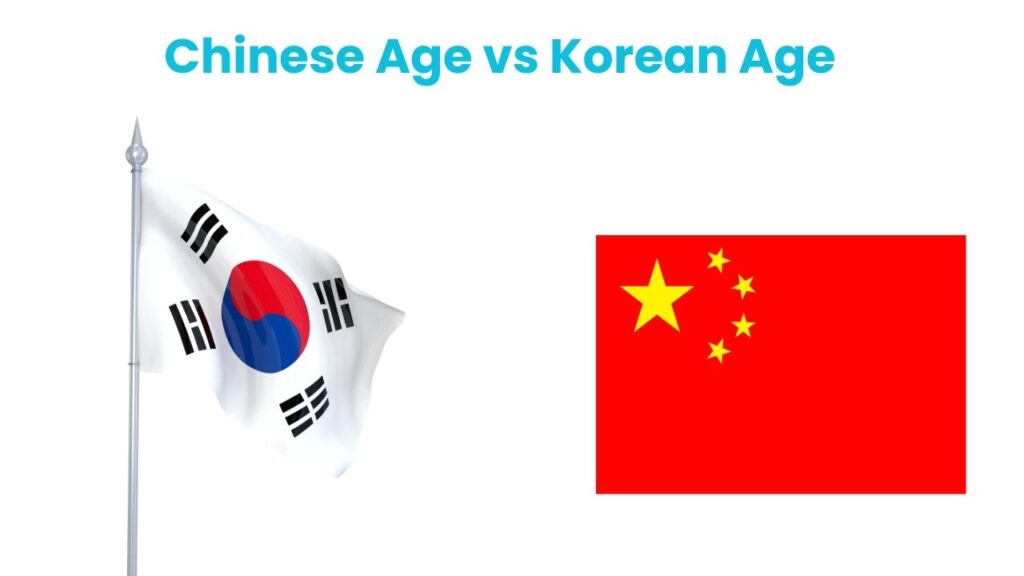Age is a simple number in most countries you’re born at zero, and you add a year on your birthday. But in China and Korea, traditional systems count age differently, leading to fascinating cultural variations. In this guide, we’ll explore Chinese Age vs Korean Age, how each is calculated, why they differ, and how you can instantly find yours using our free calculators.

What Is Chinese Age?
The Chinese Age system is based on the lunar calendar and traditional beliefs. Here’s how it works:
- You are considered 1 year old at birth (counting the time in the womb).
- Everyone’s age increases together on Chinese New Year, not on their birthday.
- The calendar follows moon cycles, so Chinese New Year usually falls between late January and mid-February.
Example: If you were born in August 2000 and today is March 2025 (after Chinese New Year), your Chinese Age would be:
- International Age: 24
- Add 1 year at birth = 25
- Add 1 year after Chinese New Year = 26 years old
Find your exact Chinese Age here: Chinese Age Calculator.
What Is Korean Age?
The Korean Age system is similar in some ways but has its own twist:
- You are 1 year old at birth.
- Your age increases by 1 year every January 1st, regardless of your birthday.
- This means your Korean Age can be 1–2 years older than your international age.
Example: If you were born in August 2000 and today is March 2025:
- International Age: 24
- Add 1 year at birth = 25
- Add 1 year on January 1st = 26 years old
Find your exact Korean Age here: Korean Age Calculator
Chinese Age vs Korean Age The Main Differences
| Feature | Chinese Age | Korean Age |
|---|---|---|
| Calendar type | Lunar (moon cycles) | Solar (Gregorian) |
| Age increases on | Chinese New Year | January 1st |
| Cultural use | Zodiac, astrology, traditions | Social interactions, legal age (historically) |
| Variation from international age | +1 or +2 years | +1 or +2 years |
Cultural Significance
Chinese Age
- Used in astrology and Chinese Zodiac predictions.
- Important for traditional celebrations like the 100th day or first birthday.
- Plays a role in the Chinese Gender Prediction Chart.
Korean Age
- Historically used in everyday conversation (“How old are you?” meant Korean Age).
- Important in social hierarchy — age determines how you address others.
- Recently, South Korea adopted the international system for official purposes, but many still use Korean Age socially.
Which One Should You Use?
For cultural or traditional purposes: Use the system relevant to the tradition (Chinese for zodiac, Korean for social customs).
For legal or official purposes: Most countries, including South Korea now, use the international age.